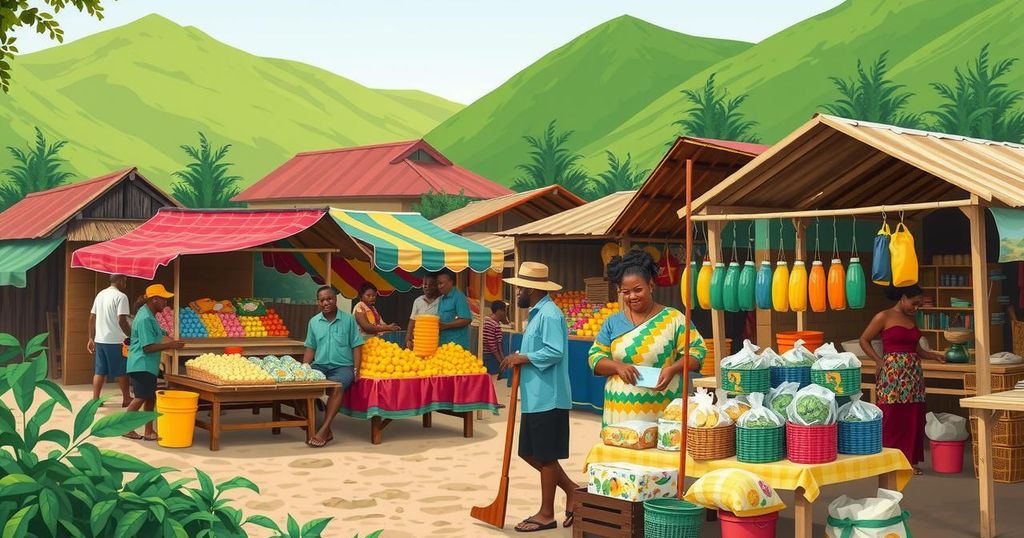The Afrobarometer Round 10 survey provides insights into the socio-economic views of Liberians, indicating divisions on economic conditions, support for democracy, and recognition of climate change. Key findings include a significant desire for government accountability, women’s rights, and concerns regarding migration. The survey emphasizes the necessity for responsive policies to address these diverse concerns.
On March 13, 2025, a significant conference took place at the Corina Hotel in Monrovia, organized by the Center for Democratic Governance. Participants, including partners and donors, discussed insights from the Afrobarometer Round 10 survey, which explored critical issues such as climate change, economic conditions, migration, and international relations from the perspective of Liberians concerning their future.
Mr. Elkanah Y. Taylor, the Program Coordinator, presented the survey’s methodology and findings, revealing that the sentiments of Liberians are sharply divided. While 50% believe the nation is progressing, an equal number holds contrary views. Economic evaluations reflect similar polarization, with 48% rating the economic situation as poor, as opposed to 45% who view it positively. Personal well-being shows ambivalence as well, as 46% report dissatisfaction contrasted with an equal percentage expressing contentment, despite a notable 61% anticipating economic improvements in the coming year.
Taylor highlighted strong opposition to authoritarianism among the Liberian populace. According to the survey, 79% of local councilors and 88% of parliament members are viewed as not adequately engaging with citizens. Furthermore, 66% believe that corrupt officials seldom face repercussions, and 58% have concerns regarding political interference compromising judicial integrity.
The survey examined external influences on Liberia’s economy and found that 68% of respondents feel China plays a significant role, whereas 86% view American economic influence positively. Additionally, 79% and 58% perceive China’s and India’s impacts favorably, respectively, but only 39% extend similar positive sentiments towards Russia. Over three-quarters recognize the beneficial roles of the Economic Community of West African States (ECOWAS) and the African Union (AU) in Liberia, advocating for diplomatic neutrality amid the Russia-Ukraine conflict.
Awareness of climate change was evident, with 68% of Liberians acknowledging the issue. Alarmingly, 71% believe climate change worsens their living conditions. A robust 82% state that the government and wealthy nations must prioritize climate action, and 81% support investments in renewable energy and infrastructure to combat environmental challenges.
In the realm of women’s rights and health autonomy, 78% of respondents believe women should have the choice of when to marry and have children, and 77% support education for pregnant girls. Notably, 61% justify abortion under certain circumstances, such as risks to the mother’s health and pregnancies from rape.
Migration is also a significant concern, with 77% of respondents considering emigration, a sentiment more pronounced among educated individuals. Economic opportunities are cited as the primary motivation for this desire, with 52% favoring North America as their potential destination.
These survey findings portray a complex landscape in Liberia, underscoring the urgent need for policies that address the economic, social, and environmental aspirations of citizens while fostering a democratic society.
The Afrobarometer Round 10 survey highlights a multifaceted view of Liberia’s socio-economic landscape. It reveals public divisions on various issues while underlining a strong desire for democracy, climate action, and women’s rights. The prevalent concern of migration points to an urgent need for policies that respond to the challenges identified by citizens, promoting a more inclusive and equitable society.
Original Source: frontpageafricaonline.com






